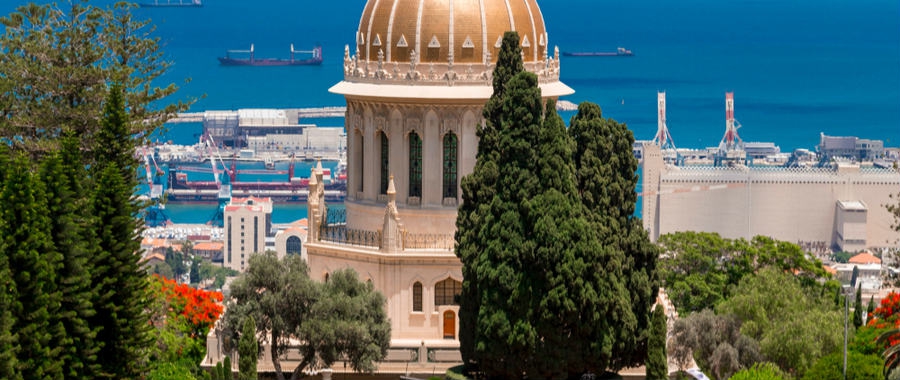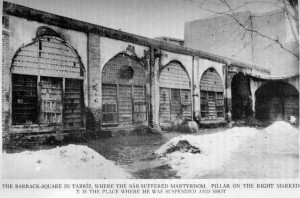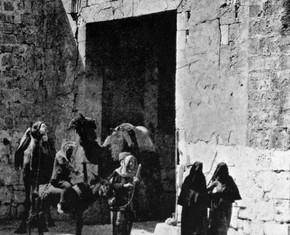The views expressed in our content reflect individual perspectives and do not represent the authoritative views of the Baha'i Faith.
The Bab consistently rejected miracles as the proof of the truth of the Prophet of God. But the Bab goes further than this. He forbids His followers to attribute any miracle to Him. And therefore, the final event in the life of the Bab is not defined as a miraculous event. Yet there is really no plausible explanation for that. And, therefore, it remains a mysterious event in the sacred history of the world. – Dr. Nader Saiedi, February 2017, Los Angeles.
I personally heard Dr. Saiedi make those comments and I found them fascinating the moment I heard them. He emphasized that the Martyrdom of the Bab is a “mysterious event”. I agree. But I’ve pondered, what is the nature of the mystery?
It was July 9, 1850, in Tabriz, Persia. That morning the jailer came to take the Bab to face the clerics who would issue the official death warrant. The Bab was in the middle of giving his final instructions to his aide. The Bab said:
Not until I have said to him all those things that I wish to say, can any earthly power silence Me. Though all the world be armed against Me, yet shall they be powerless to deter Me from fulfilling, to the last word, My intention. – The Bab, cited by Nabil, translated by Shoghi Effendi, The Dawn-Breakers, p. 509.
They took him anyway.
Sam Khan, the captain of the regiment, tasked with the execution was worried. Sam Khan, meanwhile, “was seized with great fear lest his action should bring upon him the wrath of God.” When he approached the Bab, the Bab told him:
Follow your instructions, and if your intention be sincere, the Almighty is surely able to relieve you from your perplexity. – The Bab, cited by Nabil, translated by Shoghi Effendi, The Dawn-Breakers, p. 510.
The execution process went forward. And as everyone knows, 750 soldiers shot and when the smoke cleared, the Bab was not lying on the ground, dead. But he was gone. The disciple who was being executed with him, Anis, was standing there, quite healthy, and smiling. After a frantic search, the Bab was found back in his prison cell, finishing the conversation that had been interrupted earlier.
Sam Khan saw that that the Bab had escaped the bullets, so we must assume this eliminated his “perplexity”. He ordered his men to quit the scene, vowing never again to be involved with bringing harm to the Bab. Another regiment was found, and the Bab was brought out again. The second time, both the Bab and Anis were killed, their bodies fused, but their faces strangely unmarked.
So, the first question is did this “mysterious event” really happen? Yes, the historical accounts are plentiful, trustworthy, and remarkably consistent on the central feature of the story – the first volley failed to kill the Bab.
But this is not really the point. If the Bab didn’t want people to attribute miracles to Him, why did he make the last action of his life a miracle?
Why overthrow his own teachings and do such a thing in the presence of thousands of witnesses, thus insuring that for all time that this event is what people would talk about in connection to himself? This, to me, is the mystery.
I have to say that no one knows the answer, but I have three ideas to offer. These are just one man’s interpretations; decide for yourself if these suggestions have any merit.
1. Bringing joy to a soul.
Out of grace, love and compassion for Sam Khan, just one man, whom he evidently found to be sincere, he set aside his own teaching about miracles, and performed one in front of the multitude, in order to comfort this soul and answer his prayer.
Is there any Remover of difficulties save God? Say: Praised be God! He is God! All are His servants and all abide by His bidding! – A prayer by the Bab, Selections from the Writings of the Báb, p. 216.
The Bab’s escape from the bullets was, I think, a loving answer to the plea of one sincere soul, Sam Khan. The Bab’s teaching was to bring joy, not sorrow, to all souls. I think that, when asked, he wanted to bring joy to the heart of Sam Khan.
Removing Sam Khan’s burden of “perplexity” was, I am guessing, sufficient reason to seemingly go against his own teachings. It was a demonstration of the love of God, an illustration of the extraordinary “miracles” God will perform in the life of any truly sincere seeker of truth and justice, and proof that God alone is the final remover of difficulties.
2. A mysterious proof of the worlds beyond.
Why do any of the Prophets of God lay down their lives? Baha’u’llah says that they know human life is not limited to this life. They know the world beyond is the highest paradise.
Blessed is the soul which, at the hour of its separation from the body, is sanctified from the vain imaginings of the peoples of the world. Such a soul liveth and moveth in accordance with the Will of its Creator, and entereth the all-highest Paradise… If any man be told that which hath been ordained for such a soul in the worlds of God, the Lord of the throne on high and of earth below, his whole being will instantly blaze out in his great longing to attain that most exalted, that sanctified and resplendent station…. – Baha’u’llah, Gleanings from the Writings of Baha’u’llah, p. 155-158.
The divine educators come down to earth to help us, but they are eager and willing to return home when their missions are completed. The temporary suffering of being tortured and executed means nothing to them in comparison to that.
Wert thou to ponder in thine heart the behavior of the Prophets of God thou wouldst assuredly and readily testify that there must needs be other worlds besides this world… These Gems of Detachment are acclaimed by some as the embodiments of wisdom, while others believe them to be the mouthpiece of God Himself. How could such Souls have consented to surrender themselves unto their enemies if they believed all the worlds of God to have been reduced to this earthly life? Would they have willingly suffered such afflictions and torments as no man hath ever experienced or witnessed?” – Baha’u’llah, Gleanings from the Writings of Baha’u’llah, p. 155-158.
According to Baha’u’llah, the Manifestations of God would not eagerly lay down their lives without this knowledge. So, in all cases, such as the Crucifixion of Christ and the Martyrdom of the Báb, their example is a sign of their wisdom and a proof of the worlds beyond.
3. To enable the Cause of God to grow.
Why do they pursue their course with such joy and enthusiasm?
To consider that after the death of the body the spirit perishes is like imagining that a bird in a cage will be destroyed if the cage is broken, though the bird has nothing to fear from the destruction of the cage. Our body is like the cage, and the spirit is like the bird… [If] the cage becomes broken, the bird will continue and exist. Its feelings will be even more powerful, its perceptions greater, and its happiness increased. In truth, from hell it reaches a paradise of delights because for the thankful birds there is no paradise greater than freedom from the cage. That is why with utmost joy and happiness the martyrs hasten to the plain of sacrifice. – Abdu’l-Baha, Some Answered Questions, p. 227.
Without this sacrifice, humanity will not listen, the cause of God will not grow, and humanity will not be saved.
But Christ, Who is the Word of God, sacrificed Himself. This has two meanings… The outward meaning is this: Christ’s intention was to represent and promote a Cause which was to educate the human world, to quicken the children of Adam, and to enlighten all mankind; and since to represent such a great Cause … meant that He would be killed and crucified, so Christ in proclaiming His mission sacrificed His life. He regarded the cross as a throne, the wound as a balm, the poison as honey and sugar. He arose to teach and educate men, and so He sacrificed Himself to give the spirit of life. He perished in body so as to quicken others by the spirit.
The second meaning of sacrifice is this: Christ was like a seed, and this seed sacrificed its own form so that the tree might grow and develop… The form of the seed was sacrificed for the tree, but its perfections, because of this sacrifice, became evident and apparent — the tree, the branches, the leaves and the blossoms being concealed in the seed. When the form of the seed was sacrificed, its perfections appeared in the perfect form of leaves, blossoms and fruits. – Abdu’l-Baha, Some Answered Questions, p. 120-121.
Only divine power can accomplish it.
These virtues do not appear from the reality of man except through the power of God and the divine teachings, for they need supernatural power for their manifestation. – Abdu’l-Baha, Some Answered Questions, p. 79-80.
Thus, when the Bab, or any other Manifestation of God, joyfully sacrifices his life, his intention is to answer prayers, to teach the virtues of God, and to impart the “supernatural power” necessary to bring about the salvation of all human lives. In my view, these are just glimpses of the mystery of the Martyrdom of the Bab.
There is so much more to this story which will be understood in the future. But perhaps we can say, happily, that we’ve made a beginning.

















Comments
Sign in or create an account
Continue with Googleor